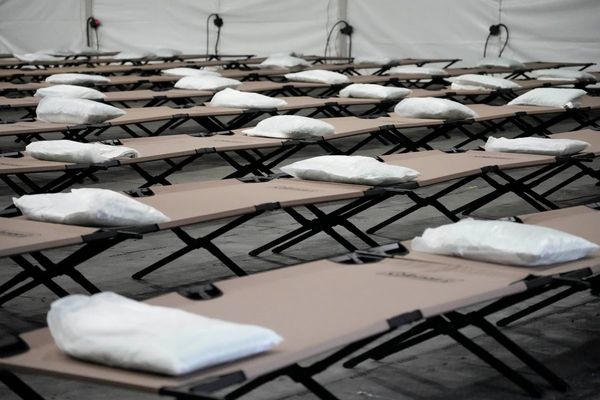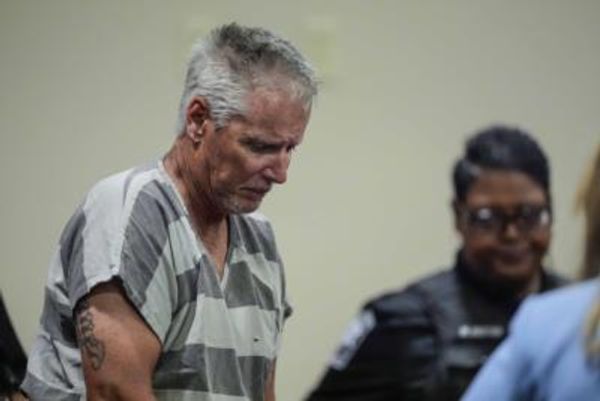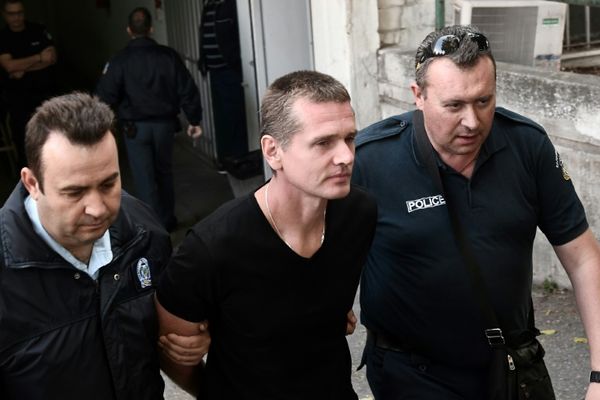Prime Minister Scott Morrison says Australia will join other western nations to impose financial sanctions on Russia, as punishment for its actions in Ukraine.
Mr Morrison said targeted travel bans and financial sanctions will be imposed on eight individuals on Russia's national security council who are "aiding and abetting" the invasion, and broader sanctions will be extended to the separatist Ukrainian regions of Donetsk and Luhansk.
The financial punishments bring Australia into line with the United States and United Kingdom, who announced sanctions overnight.
"The invasion of Ukraine has effectively already begun. This invasion is unjustified, it's unwarranted, it's unprovoked and it's unacceptable," Mr Morrison said.
"Australians always stand up to bullies, and we will be standing up to Russia."
Sanctions extended to the separatist regions will target transport, energy, telecommunications, oil, gas and mineral reserves, as well as several Russian banks.
The Prime Minister said he also expected to impose sanctions on more Russian citizens and entities who seek to benefit from a Russian invasion of Ukraine.
Mr Morrison said Ukrainian visa applications would be moved to "the top of the pile", and further support was being planned.
"There are some 430, roughly, applications from Ukrainian citizens to come to Australia, they're across a range of different visa classes; student visas, family visas and others, so I have asked for those to be concluded," Mr Morrison said.
"We will work very closely with [neighbouring countries] to deal with the likelihood of displaced persons. This is where we think we can provide some quite effective assistance."
He warned a full-scale invasion of Ukraine was "likely to occur" within 24 hours.
Russian President Vladimir Putin has officially been given parliamentary approval to deploy troops abroad hours after reports that Russian forces had already rolled into rebel-held areas in eastern Ukraine.
Ministers warn Russia may retaliate for sanctions
Home Affairs Minister Karen Andrews has warned Russia may hit Australian critical infrastructure with cyber attacks in retaliation for fresh sanctions from the federal government.
"We are concerned about protecting Australia's interests. We are concerned about the potential for a cyber attack on our critical infrastructure in Australia," Ms Andrews said.
"[But] that doesn't mean we are going to go lightly in our response to Russia because their behaviour needs to be called out."
Mr Morrison said several companies had already been alerted privately of possible attacks from Russia and "other actors".
Foreign Minister Marise Payne — who is in Europe attending security meetings — also left the door open to expelling Russia's ambassador to Australia.
"Dealing with diplomats in that way, whether it is expulsions or recalls, is always an option," Senator Payne said.
"Our focus at the moment, though, is targeted sanctions that will have an impact on those responsible.
"So, whilst there are other options and other tools, if you like, in the toolkit — such as how we deal with diplomats — that's a matter I'll turn my mind to at an appropriate time."
Earlier, Ukraine's representative in Australia, Volodymyr Shalkivskyi, thanked Australia and other countries for their support and said that sanctions should be directed toward the "most-vulnerable" areas of Russia: energy and finance.
"We believe there's need for significant expansion of sanctions, but this will depend on the situation on the ground," he said.
Mr Shalkivskyi said there were "clear signs" Ukraine had been invaded but that his country would not retaliate while diplomatic options were still on the table.
"We do not want to give the Kremlin pretext for the invasion," he said.
"We are ready to defend our territory… but we do hope that sanctions, increasing sanctions, will work and it will make [the] Kremlin think about further escalation of this situation."







